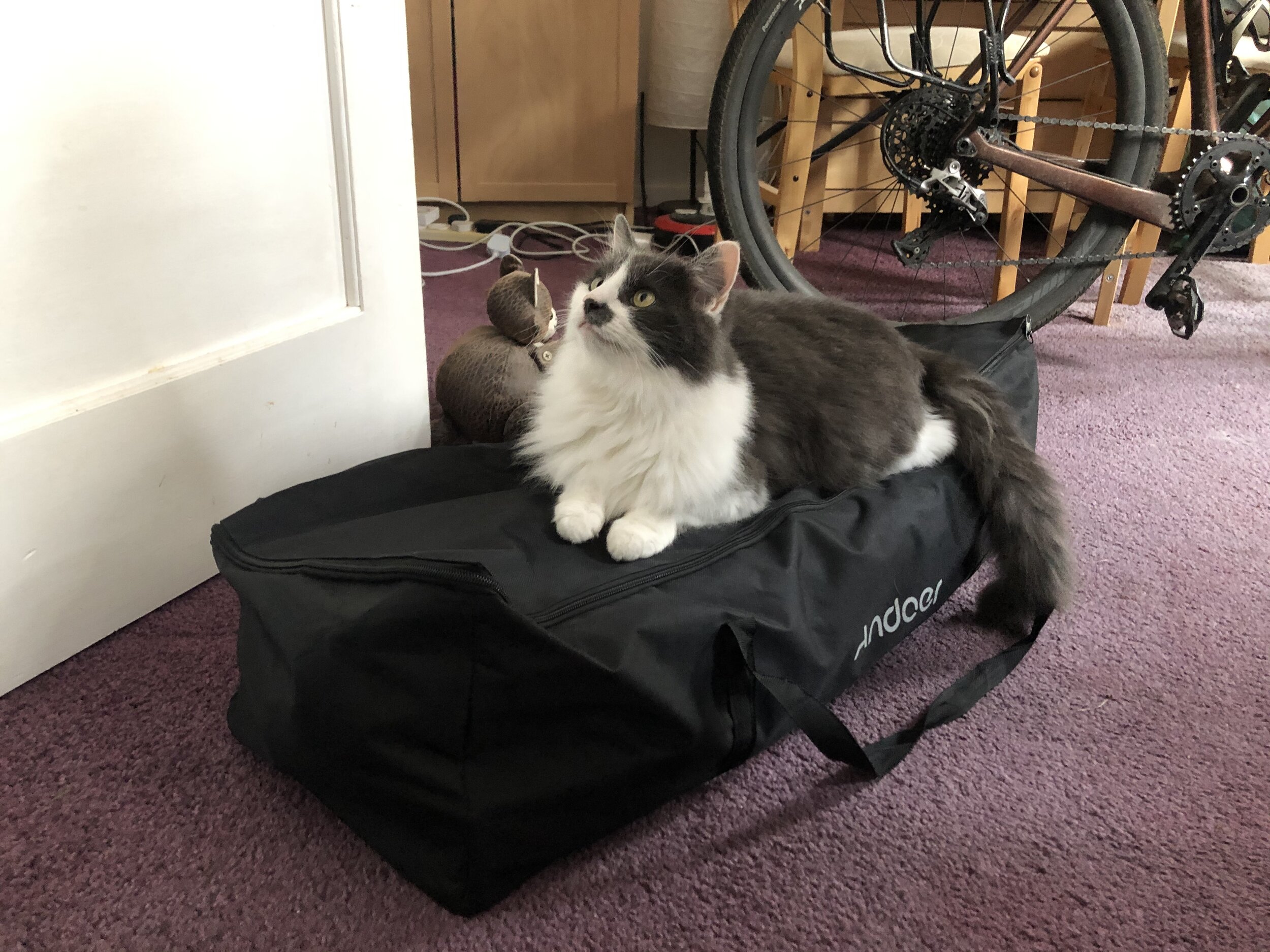How much cutlery do you have in your kitchen drawer?
Before you settle down to read this, go have a quick look. Is it just one or two items of cutlery per person? Or is it choc full of silverware? And if so, how much of it do you really need?
What about t-shirts - how many do you have? Pairs of shoes? Hats? And what about the millions of other items we have in our houses that never get used, that we don’t really need?
When we started packing for life on the road during our adventure, a few things quickly became apparent - firstly that we had a lot of stuff (and compared to many people, we buy very few clothes) and secondly, that not much of it was going to fit in our bags. We needed to make sure we took only what we needed; there was even lengthy debate about how many pairs of pants were required. Apparently, two pairs was inadequate.
After much culling, we were left with a couple of cycling outfits each, and a very limited range of clothing for time spent off the bike. Plus of course, all the camping and cooking kit, bike spares and mechanic equipment we were going to need for a self-sufficient life on the road. Even with ruthless management, when we set off, Lou was carrying over 20 kilograms on her bike, and I had just over 30.
Will I fit in the bags?
“There’s nothing like carrying what you need all day to motivate you to live more simply.”
Lugging all of that weight over the Cotswolds, Malverns, Brecons and Pembrokeshire hills definitely helped to us appreciate the importance of living simply - the bikes were heavy and it was extremely tiring on our legs. Even with our minimalist approach, when we reached our first rest stop at Lou’s dad’s house at the end of day four, we were still able to shed another half a stone of items before setting off again. When you really sit and think about what you need to live, you’ll be very surprised how little that actually is.
A wasteful society
Bear these statistics in mind:
According to the Department for Environment, Food & Rural Affairs, Britons only recycled 45% of the waste we produced in 2019
9.5 million tonnes of food is wasted in Britain each year - 70% of which is perfectly edible, with a value of approximately £19 billion (WRAP - The Waste & Resources Action Programme)
350,000 tonnes (around £140 million worth of used but still wearable clothing), goes to landfill in the UK every year (Clothes Aid).
Put simply, we buy, use and waste far more stuff than we really need.
That shirt, again
You may or may not have noticed that in the photographs of our adventure, we were always wearing the same clothes. Lou had one pair of jeans and a few different tops for the evenings, whilst I had one pair of trousers, one t-shirt and my favourite check shirt. She mocked me endlessly for my wearing of that shirt, and if I’m honest, it probably could have done with one or two more washes that it had en route, but it was warm and comfortable, and more than anything it stopped me from having to make a choice about what to wear. That may not sound like a big thing to you, but when you’re tired, the less decisions you have to make, the better.
What shall I wear today?
Less is more
Whilst I might joke about it, there are massive benefits to be derived from living with less clothes, less food and just less stuff in general. It’ll save you money, giving you more to buy the things you really do value, or to spend it on the experiences that matter most to you. It’ll give you more space, something we always desire; it means less things to clean, tidy, sort, and pack if you’re moving house (we can vouch for the benefits of living with less on this front, having recently spent way too much time sorting and packing ‘things’ when selling the house). Having less and living more simply can help to shift your mindset away from materialism - you’ll feel less stressed if you’re not trying to constantly ‘keep up with the Jones’s’ and you may find that money worries ease too.
And these benefits don’t even begin to consider the great things you’ll do for our planet by living with less. Less consumption means less waste, and less waste means greater sustainability, something that’s only going to become more important as the world’s population continues to rise. You may think that what you do is of little consequence, but the balance ethos says otherwise. We truly believe that tiny individual changes can lead to massive results. Ever heard the folklore statistic about what would happen if everyone in China jumped up and down at the same time? It was said that it would cause an earthquake or some other natural disaster - it’s not true of course (it has genuinely been researched and scientists even created formulas to assess the outcome), but the principle is one that we should still take to our hearts. Small actions performed by millions of people simultaneously can bring about gigantic changes.
How can you live with less?
Do you regularly throw certain foods away? Do you have a big pile of clothes that could go into a charity bag, or be taken to the local clothing bank? Do you really need to buy that new item, or could you repair, re-use, adapt, buy second-hand, or even live without?
Living with less certainly bought us closer to balance on our ride. Life felt less stressful, less confusing and simpler. It can do the same for you.






